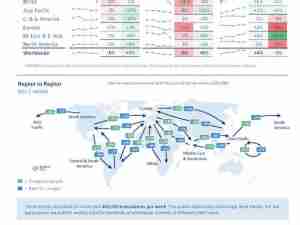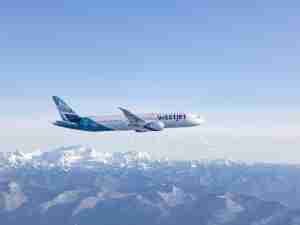Finance Minister Jim Flaherty said the strike at the country's biggest airline is damaging the economy and that notice of a bill to end it will be given in the House of Commons.
"Air Canada has a huge section of the market in Canada in terms of travel," Flaherty told reporters in Ottawa. "It affects tourists, of course, but it affects business, it affects the delivery of cargo in Canada and from Canada abroad. So this is a matter of significant economic consequence."
The CAW said it was angry about news of Ottawa's planned involvement, less than 24 hours after the strike began.
"This action by the government is a clear interference with the right to free collective bargaining," CAW National President Ken Lewenza said in a statement.
"The speed at which this legislation has been tabled points to a very real collusion by the Conservative federal government and Air Canada to strip workers of their rights," he said.
Ottawa has previously intervened in labor disputes in the transportation sector. In 2009, it introduced legislation to force striking locomotive engineers at Canadian National Railway back to work.
Air Canada said earlier it had experienced some flight delays on Tuesday but no severe disruptions following the walkout overnight after the two sides failed to agree on a new labor pact.
The carrier, facing its first major strike in 13 years, had not canceled any flights because of the strike, spokeswoman Angela Mah said. The CAW said some 70 flights had been canceled.
The airline diverted customer calls to centers in the United States and deployed 1,700 of its managers to airports across Canada to take the reins at check-in and ticketing desks.
It had also brought in workers from Garda World Security, which supplies Air Canada with airport security screeners, the Globe and Mail reported on its website. The report could not immediately be confirmed.
New Pension Proposal
The CAW presented Air Canada with a modified pension proposal on Tuesday morning and was waiting to hear back from the airline, CAW spokeswoman Shannon Devine said.
Negotiations have foundered primarily on the issue of pensions.
The carrier wants to do away with its defined benefit pension plan for new hires as it looks for ways to reduce its deep pension deficit, which stood at C$2.1 billion ($2.2 billion) at the start of 2011.
It has also proposed changes to pensions for existing employees, which would see some having to work more years for the same benefit.
At Toronto's main airport, Pearson International, about 100 striking workers wearing placards and holding banners stood at the entrance to Terminal 1, stopping Air Canada employees on their way to work to "share information" but they did not hold up passengers.
Members of other unions at Air Canada appeared to be crossing picket lines.
"They're going to work, but they're taking their time to do it," said Air Canada customer service agent Marko Generalovic, who was on a picket line at Pearson.
"We're going to do our best to slow things down, but we're not going to stop anyone from doing their job," he said.
Rival WestJet Airlines Ltd said it had "definitely seen some bookings" from Air Canada customers although it was not clear how many. The number of calls to its sales center started increasing over the weekend, WestJet spokesman Robert Palmer said.
The last major strike at Air Canada was in 1998 when the airline's pilots walked off the job for about two weeks.
Air Canada's proposal to start up a low-cost carrier to fly to destinations in Europe and elsewhere has also met with resistance from some employees who oppose the lower pay scale the carrier wants to use for the venture. (Reuters)






